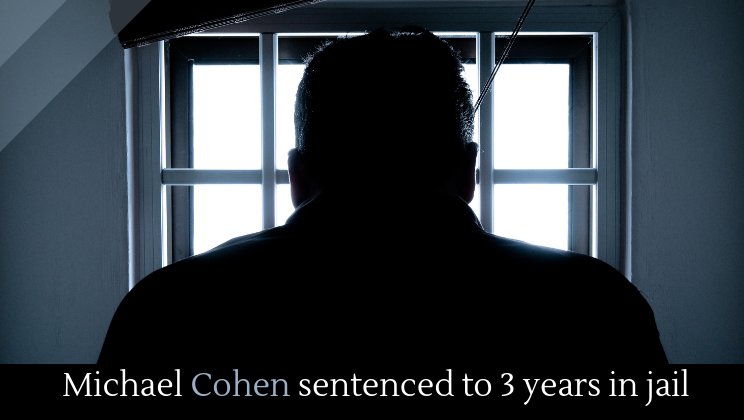Author: Josh Taylor
Former Flynn associates indicted in Turkey lobbying case
Posted by Josh Taylor / December 18, 2018Kian and Ekim Alptekin, two former business associates of Michael Flynn, have been indicted “as part of a federal investigation into Turkey’s secret 2016 lobbying campaign to pressure the United States to expel a rival of Turkish President Recep Tayyip Erdogan,” according to the New York Times.
The Times also notes that the “indictment is further evidence of a broad crackdown on unregistered foreign lobbying growing from the inquiry by Robert S. Mueller III, the special counsel who has investigated foreign flows of money from Ukraine, Turkey and other countries designed to manipulate decision-making in Washington.”
According to the indictment, “The defendants sought to discredit and delegitimize the Turkish citizen in the eyes of politicians and the public.”
The Washington Post notes “the indictment demonstrates the extent to which Flynn was secretly working to advance the interests of his Turkish clients while publicly serving as a key surrogate to Donald Trump and auditioning for a role in his administration.”
This latest indictment only further’s Tim O’Brien’s argument that entire presidential campaign was a “criminal conspiracy:” “What we’ve learnt from this raft of legal documents that have landed in our lap over the last couple of weeks is that there’s the very real possibility that the Trump campaign was a criminal conspiracy from its beginnings and that bled into the Trump transition, where various criminal acts might have been committed. Now you have the Trump White House dealing with the consequences of all these.”
Read MoreHow John Oliver hurts democracy under the guise of comedy
Posted by Josh Taylor / December 17, 2018Several years ago, Last Week Tonight’s long, investigative segments were a critical part of my Monday morning routine. I’d way up, make breakfast, and then sip tea while learning more about standardized testing biases or problems with the U.S. infrastructure. I remember being impressed with the quality of research for each piece, and even though the show clearly leaned left (which is fine by me), it did a good job being reasonable in its presentations.
But almost as soon as Donald Trump was elected, the show took a turn. Oliver said in an interview that he and the writers try to keep a diversity of topics in the show: “We’ve had to protect the main body of our show, because there’s so much low-hanging fruit around, you can kind of gorge yourself on that and forget that there are other things going on in the world, so we try and make sure that the vast majority of our main stories are not centered around the president.”
But as I skim through the archive of Last Week Tonight long segments he’s done in years past and compare them to the most recent season, something is very obvious: Last Week Tonight has declared war on Trump and the GOP. Nearly every segment has gone back to Trump or the GOP this season––older episodes did not go back to Obama or the Democrats, though. The show’s once slight lean to the left has turned into vitriolic Anti-Rightism.
I’ve had to change my Monday morning routines this year. Starting off the week with unforgiving “us versus them” rhetoric was starting to eat away at me. I still think Oliver is funny, and the segments I do watch make me chuckle, but beneath that there’s the sense that Oliver is doing more to fan the fires of partisanship than he is to shed light on injustice.
More about television.
Read MoreFor tech, 2018 was the first of many very bad years to come
Posted by Josh Taylor / December 17, 2018When it reemerged after the early 2000s dotcom bubble, the tech industry was a force to be reckoned with. Company after company emerged that was forging new market niches or disrupting old ones. Mark Zuckerberg, Mark Benioff, and Travis Kalanick became household names among the tech savvy. Those in the know used Facebook regularly, shopped almost exclusively on Amazon, and took Ubers around whatever city they lived in. This was the growth period.
Before too long, the gospel of tech spread beyond the young, the hip, and the knowledgable. Grandmas got Facebook, Amazon became the default verb for shopping online, and Ubers spread to nearly every city and town in the country. This was 2010-2016, and even as the companies were growing and spreading, the cracks were beginning to appear.
By 2017, the narrative was changing. Wired didn’t want to publish positive stories about tech anymore, not only because they’d been burned after endorsing companies that turned out to be duds or bosses that turned out to be jerks, but because their readership wasn’t into that kind of story anymore. They wanted to read negative stories.
And now there’s 2018. The narrative has fully shifted away from the “heroic tech companies” narrative. They are now, officially, villains. Gizmodo published the biggest tech lies of 2018, replete with a cover photo of Zuckerberg sitting in front of Congress (which was their number one biggest tech lie of the year).
Some are trying to rescue the “heroic tech” narrative. One CNN writer, for example, suggested that we stop calling Facebook a tech company because they’re simply too evil. Leave the tech title for those doing good work, like inventing self-driving cars. But how long until those cars start killing people, and they’re not longer tech companies?
For an even more damning look at the year, check out Recode’s recap of tech’s 2018 in 14 charts. The next few years will be bad for tech. Not because of anything tech does, even, but because the narrative has changed and it will be some time before it shifts again.
Read MoreStudy shows that cell phones reduce overall mindfulness
Posted by Josh Taylor / December 16, 2018A recent study has revealed how mentally destabilizing regular cell phone use can be. According to Psychology Today, “Being plugged into your smartphone creates a state of ‘online vigilance’ where one’s mind is automatically monitoring communications like email, texts, or phone notifications.”
Other studies have shown that mindfulness is beneficial to your health for a variety of reasons. “Online vigilance” makes it hard for you to be mindful, and therefore prevents you from enjoying these benefits. There are several ways to engage with technology thoughtfully and allow yourself mentally to unplug. Zenhabits offers a few simple limits you can place on your tech use.
Step one, be aware of when technology is starting to overrun your life. Do you reach for your phone constantly, even when you sit down to relax and do nothing or when you should be doing other things? As you think through these things, set up a list of limits you might like to put on your tech use. Here are some suggestions:
No phones will you’re waiting in line, in your car, going to sleep, or at the dinner table.
Get rid of the time-sucking, addictive apps. You know what they are.
Answer all your messages just a few times ad day, unless it’s urgent.
Embrace “Do Not Disturb” mode. It is your friend.
Leave your phone in another room whenever possible.
More about tech.
New developments in CA’s deadly Ghost Ship fire
Posted by Josh Taylor / December 16, 2018In 2016, an Oakland warehouse, artists’ commune, and sometimes music venue caught fire during a concert, killing thirty-six people. Most of the victims were there to see the concert and found themselves trapped within the maze of makeshift walls, jury-rigged stairs, and hidden exits. The absentee landlord allegedly knew of the warehouse’s faulty-wiring and fire hazards. The Oakland fire department knew of it. But the only charges made were against the founder of the Ghost Ship artistic commune, Derick Ion Almena, and his so-called right-hand, Max Harris.
A recent New York Times feature tells a different story, casting Max Harris as guilty only of naiveté and Almena as a manipulative autocrat. It does not do much to explore the role of the landlord’s negligence––perhaps criminal negligence––in the blaze.
According to the East Bay Times, however the “attorneys for the Ghost Ship defendants are asking the Alameda County District Attorney’s Office for an unusual move — to arrest the warehouse landlords and fire department officials for the deadly fire.” Those fire officials include “Capt. George Freelen, who testified in the case’s preliminary hearing last year that there was a high fire load at the warehouse when he and others entered inside. He testified he filed a report questioning the use of the warehouse, but the report was never found.”
More news.
Read MoreFacebook filed patents for a future-telling feature
Posted by Josh Taylor / December 15, 2018When Facebook first unveiled its news feed feature, a Northwestern student created a group called, “Facebook gains consciousness, sends machines back in time to kill Sarah Connor.” It was a popular group, at the time, but eventually people got used to Facebook’s seeming omnipotence. But how far will that tolerance last?
Inc has recently reported that the tech giant has filed a patent for technology that will predict where you’re going––based on past locations––even when you’re offline. Facebook has already drawn fire for the proposal.
The patent’s abstract reads:
In one embodiment, a method includes determining a current location of a user based on location data received from a client device; and calculating a transition probability of the user transitioning, within a predetermined time window, from the current location to each of a number of candidate geographic locations. The calculating of the transition probability is based at least in part on previously logged location data associated with a number of users who were at the current location. The method also includes determining metadata associated with the user; and calculating an offline probability associated with each of the number of candidate geographic locations using a computer model and the metadata associated with the user. The computer model is generated using machine learning and metadata associated with users who were at the respective candidate geographic location.
More tech news.
Read MoreJohnson & Johnson shares plummet after report proves it knew of tainted baby powder for decades
Posted by Josh Taylor / December 15, 2018Johnson & Johnson shares plummeted 11% following a Reuters report that demonstrates the company knew its baby powder was tainted with asbestos. According to the report, talc and asbestos are often found together, and
from at least 1971 to the early 2000s, the company’s raw talc and finished powders sometimes tested positive for small amounts of asbestos, and that company executives, mine managers, scientists, doctors and lawyers fretted over the problem and how to address it while failing to disclose it to regulators or the public.
The Reuters report details the company’s discovery of the problem with their talc sources, as well as their decades-long efforts to avoid dealing with the consequences––both before and after litigation.
After the report, investors began dumping their shares in the company. A similar event occurred in 2002, following “former employee’s allegations of false record-keeping at a Johnson & Johnson plant that makes an anemia drug linked to serious side effects.”
Wells Fargo believes that the sell-off is “excessive,” and that the company will outperform. They will almost certainly take a hit as class-action lawsuits will most likely skyrocket after this report.
More business.
Read MoreHarvard study of 800 people over their lifetimes reveals keys to happiness, longevity
Posted by Josh Taylor / December 14, 2018A recent book, Aging Well: Surprising Guideposts to a Happier Life from the Landmark Study of Adult Development summarizes the results of a decades-long study and reveals keys to happiness, success, and longevity. Harvard Magazine summarizes: “The book examines the lives of a group of Harvard men who have been studied from their college years all the way to retirement and, in some cases, death…Their life histories open a remarkable window onto the process of human maturation in its physical, psychological, and social aspects. It turns out that the pathways that lead to physical health and joyful living in later years are actually quite distinct from each other” but both are needed.
Business Insider summarizes six of the biggest takeaways:
Don’t smoke or drink. Smoking is a strong indicator of overall bad health, and drinking will lead to depression, social problems, and health issues.
More education = better lives.
Raise your children with love––happy childhoods are stronger indicators of success than social class.
Constantly cultivate relationships.
Don’t blame others for your problems or avoid them. Take one of these “mature” strategies: “Such virtues can include doing as one would be done by (altruism); artistic creation to resolve conflict and spinning straw into gold (sublimation); a stiff upper lip, patience, seeing the bright side (suppression); and the ability not to take oneself too seriously (humor).”
Be generous with yourself, especially as life goes on.
More about your health.
Will America ever move beyond Christianity?
Posted by Josh Taylor / December 14, 2018Statistically speaking, America is a Christian nation. According to the Pew Research Center, about 70% of Americans are Christian. Christianity is in the fabric of our nation. But new research indicates that it is declining among younger generations. A recent New York Times opinion piece ponders whether America will ever move away from Christianity for good. The upshot of that article is this:
…much of what we understand as the march of secularism is something of an illusion, and that behind the scenes what’s actually happening in the modern culture war is the return of a pagan religious conception…that divinity is fundamentally inside the world rather than outside it, that God or the gods or Being are ultimately part of nature rather than an external creator, and that meaning and morality and metaphysical experience are to be sought in a fuller communion with the immanent world rather than a leap toward the transcendent.
The author brings up an interesting question. Given the declining numbers of Christians, and the increasing adherence to moral relativism among Generation Z, we might see more people seek “fuller communion with the immanent world rather than a leap toward the transcendent.” One thing to consider, though, is the cultural power––and cultural staying power––of Christianity. As I said before, it is woven into the fabric of society, and even things that seem as secular as Oprah have deeply Christian roots:
More about religion.
Read MoreMichael Cohen sentenced to 3 years in jail
Posted by Josh Taylor / December 13, 2018Michael Cohen, Donald Trump’s attorney and the former Republican National Convention’s Deputy Finance Chair, has been sentenced to three years in prison following a plea deal that implicates Trump in both political and financial crimes. According to NPR,
First, Cohen told authorities that Trump had directed him to arrange payments to two women ahead of Election Day in 2016 to keep them quiet about sexual relationships they said they had had with Trump — allegations Trump denies…Later, Cohen admitted that he and other Trump aides continued negotiations with powerful Russians about a potential real estate project in Moscow well into the 2016 presidential campaign.
Cohen appeared to express remorse for his behavior, saying, ““I blame myself for the conduct which has brought me here today, and it was my own weakness and a blind loyalty to this [Donald Trump] that led me to choose a path of darkness over light. And although the president has recently called him “weak,” Cohen said that it was “for a much different reason than he was implying. It was because time and time again I felt it was my duty to cover up his dirty deeds rather than to listen to my own inner voice and my moral compass.”
If you’d like to read some interesting insight on these developments, check Reddit’s megathread.
More politics.
Read MoreNo, Vox, Alexandria Ocasio-Cortez should not be able to be president (yet)
Posted by Josh Taylor / December 13, 2018Matthew Yglesias, a senior correspondent for for Vox and an accomplished journalist, recently published an article entitled, “It’s ridiculous that it’s unconstitutional for Alexandria Ocasio-Cortez to run for president.”
For those who might not remember their U.S. government courses in high school, you cannot be president unless you’re 35. Yglesias writes:
…the really awful thing about being old is that you just keep getting older over time…With youth, by contrast, it’s the exact opposite situation. You might worry that a new youthful president is underexperienced (but then again, which president hasn’t been a little underexperienced), but lack of experience is guaranteed to improve with time. Things are as bad as they’ll ever be during the campaign, so voters can judge for themselves without worrying about lurking problems.
This last sentence is mind-bogglingly inane, as it is perfectly belied by what happened in the 2016 election. Things during that election were decidedly not as bad as it would get, and there are so many lurking problems we had to appoint a special counsel to investigate. Does Yglesias think that Democrats are somehow immune to this and can somehow see into the future to spot those “lurking problems”?
He also writes:
The constitutional prohibition on people under the age of 35 serving as president is just one of these weird lacuna that was handed down to us from the 18th century but that nobody would seriously propose creating today if not for status quo bias.
Me. I would. I’m 32 years old as of this writing, and if someone tried to appoint me president I’d call them a fool. If I wouldn’t trust myself as president at 32, why would I trust someone even younger than that to be, you know, the most powerful person on the planet?
But if you’re swayed by all of that, you should read the most powerful argument Yglesias made. It might win you back: “One good sign that AOC should run for president is that she has a nickname — AOC.”
Good grief. To be fair, Yglesias was trying to make a different point with that nickname nonsense: “it’s proof positive that she’s an honest-to-goodness political superstar, and it’s clear that’s what many Democrats are looking for in 2020.”
That statement is, by far and away, the most ridiculous of the entire piece. Yglesias is saying that fame and popularity should be enough to change the Constitution and elect someone president. So by that logic, it would make sense to vote for a reality TV star, right? Or a popular business man?
And here’s the thing. I actually love “AOC.” I think she’s great. But I think it’s absurd to say that she should be president because she’s a “superstar.” The Democrats don’t need a superstar. They need to get their house in order, fix their alienating policy platform, and root out the corruption in their ranks. They do not need to fall into the same trap the GOP did and elect some flavor of the week, only to deal with the inevitable consequences.
More politics.
Read MoreBarna research report suggests latest generation most atheist ever
Posted by Josh Taylor / December 12, 2018A Barna research report reveals that the members of Generation Z are less likely to identify is Christian and the number “that identifies as atheist is double that of the U.S. adult population.”
Here are the takeaway numbers:
13% of Gen Z identify as atheist, compared to 6% of adults.
59% of Gen Z identify as Christian, while 75% of Boomers do.
Teens and young adults are more likely to call the problem of evil a dealbreaker than their adult counterparts.
Teens are less likely(!)to call religious people judgmental than adults (17% versus 24%)
“For many teens, truth seems relative at best and, at worst, altogether unknowable.” (I’m quoting directly from the report)
Beware of over-interpreting this data. It’s very, very soon to make the claim that Gen Z’s relatively high percentage of atheism and low percentage means that religion is on the decline in America. That claim has been made again and again, and it has always been wrong. In fact, historically speaking, a rising number of non-believers might actually lead to an increase in religion in the long term for a variety of reasons: evangelists will see opportunity, churches will unite against non-belief and work hard to return members to the fold, and like any societal movement secularization eventually leads to a pendulum swing in the opposite direction.











